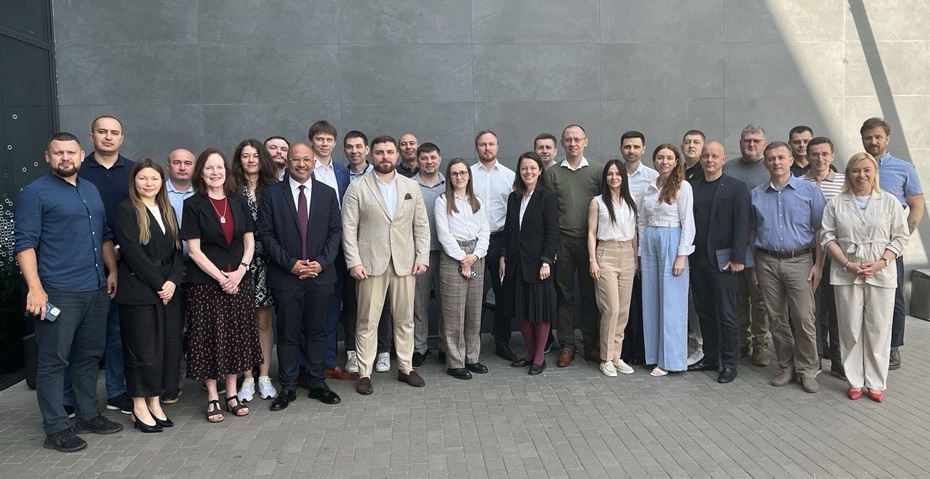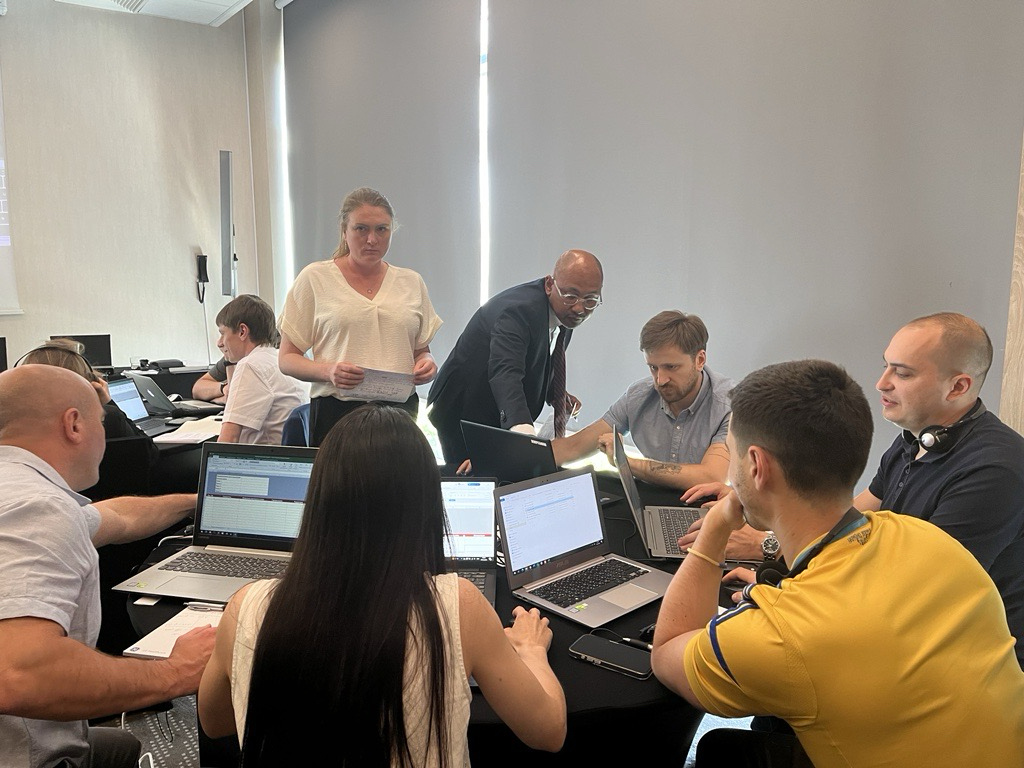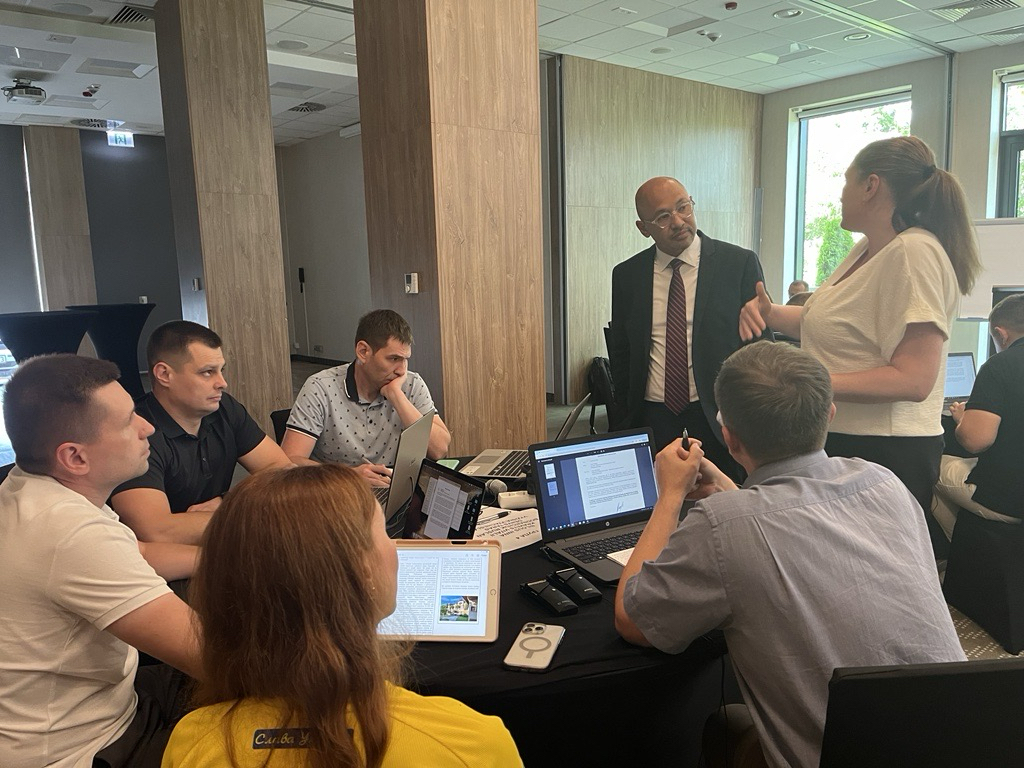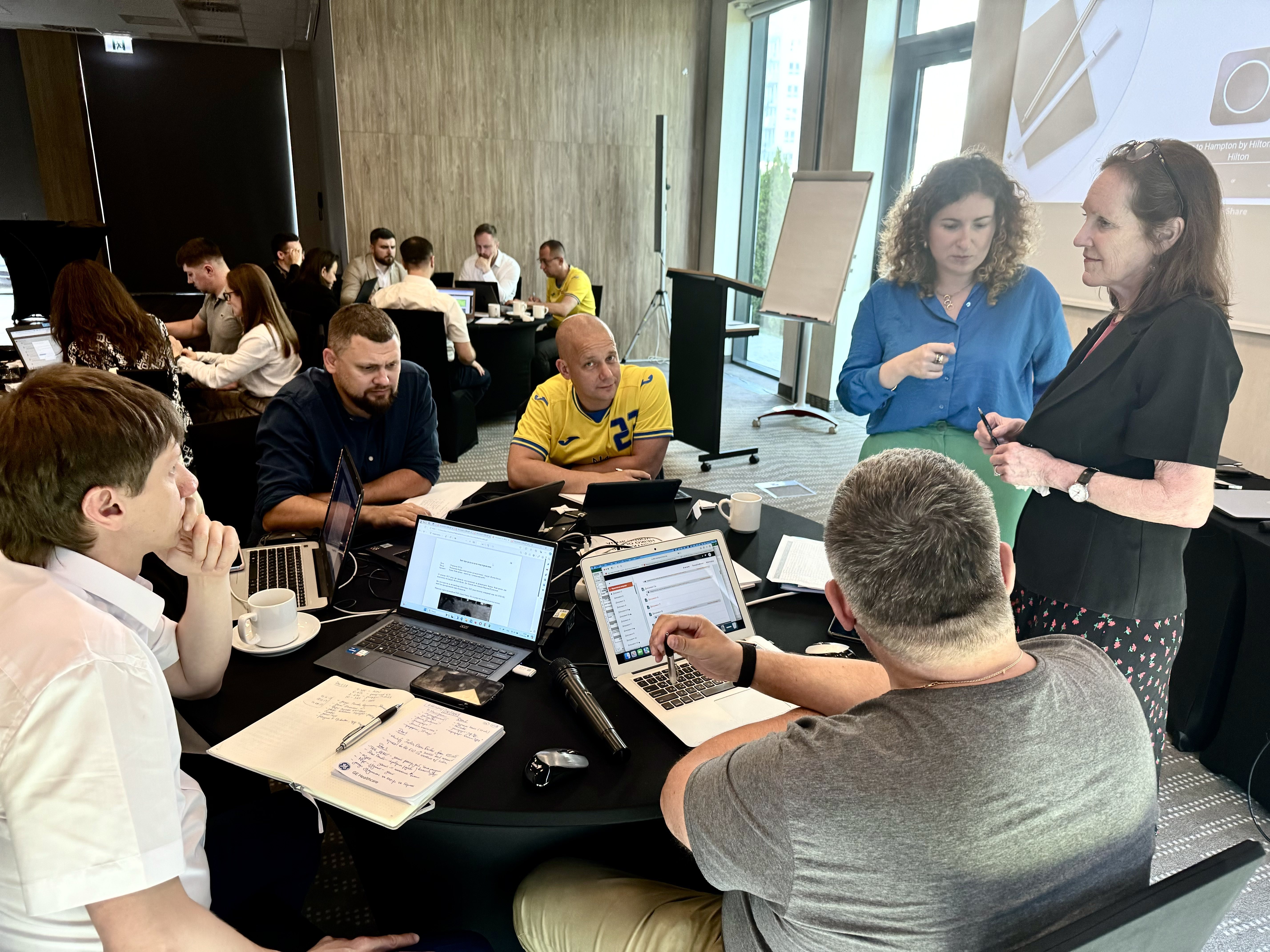Advancing asset recovery in Ukraine: new train-the-trainer programme

In the context of the Anti-Corruption and Asset Recovery Support of Ukraine programme funded by the Swiss Agency for Development and Cooperation, the International Centre for Asset Recovery (ICAR) training team recently delivered a Financial Investigations and Asset Recovery training workshop for 25 Ukrainian practitioners.
Participants joined us from the National Anti-Corruption Bureau of Ukraine, the Specialised Anti-Corruption Prosecutor’s Office and the High Anti-Corruption Court. The training was conducted in Lublin, Poland, near the Ukrainian border.
Ensuring long-term, local expertise
This training marked the first phase of a Ukrainian Train-the-Trainer programme, which will continue throughout 2024 and 2025. This in-depth programme aims to increase local training capacity by equipping local anti-corruption professionals with the skills to become qualified ICAR trainers over the course of five workshops, while simultaneously training up to 125 other participants.
As a result, six Ukrainian practitioners from these agencies will soon be certified to deliver the Financial Investigations and Asset Recovery training programme using the unique ICAR methodology.
An approach that works
ICAR’s engaging methodology incorporates real-world scenarios and prioritises hands-on teamwork. One participant praised the approach, stating,
"The methodology of the course is brilliant; it is the envy of every law student or law professor, and is especially important for working professionals. The practical exercise used seemed very plausible and the participants often found similarities with cases from their own experience, which allowed them to immerse themselves in the task, and gain knowledge from an exercise which was as close to reality as possible.”
Another important factor of ICAR training programmes is that practitioners from different agencies are given the chance to work and learn together. One participant commented that they "really liked that the groups consisted of representatives from different authorities involved at each stage of the investigation of the case".
A judge also remarked that the training improved his understanding of the role of detectives and prosecutors, fostering better collaboration within the judicial system.
Incorporating new legislation and avenues for asset recovery
ICAR has been conducting training in Ukraine since 2009, and has witnessed significant progress in the country's anti-corruption and anti-money laundering legal and institutional framework.
An important example is the 2020 amendment of Article 209 of the Criminal Code of Ukraine on the legalisation (laundering) of proceeds of crime. This aims to remove obstacles to the investigation, prosecution and conviction of autonomous (standalone) money laundering offences. As in many countries, money laundering offences have traditionally often only been prosecuted as part of criminal prosecutions for predicate offences. In his opening remarks delivered online, the Director of NABU, Semen Kryvonos, highlighted advancements such as these, emphasising the significant shift in mindset over time.
Trainers challenged participants to fully utilise these new legal possibilities. Discussions also covered new avenues for asset recovery, such as the recently introduced confiscation of unsubstantiated assets, which does not require a criminal conviction.
Despite the challenging circumstances generated by the full-scale invasion of Russia, Ukrainian anti-corruption institutions continue to push forward. Through the ICAR Train-the-Trainer and other ongoing programmes, the Basel Institute is committed to providing unwavering and sustainable support to Ukraine’s anti-corruption and asset recovery efforts.





